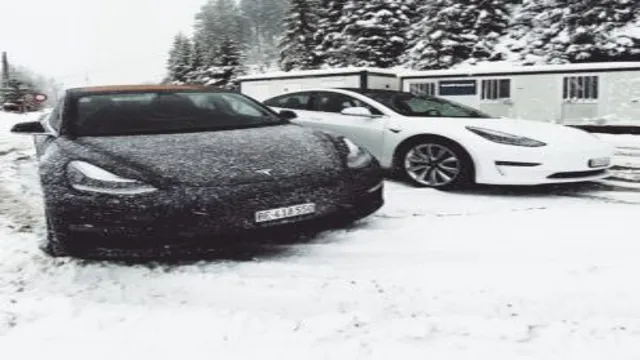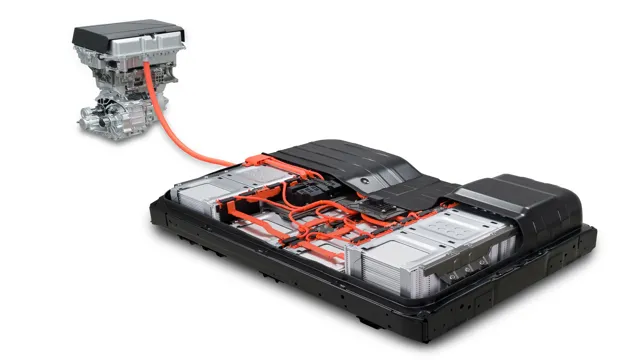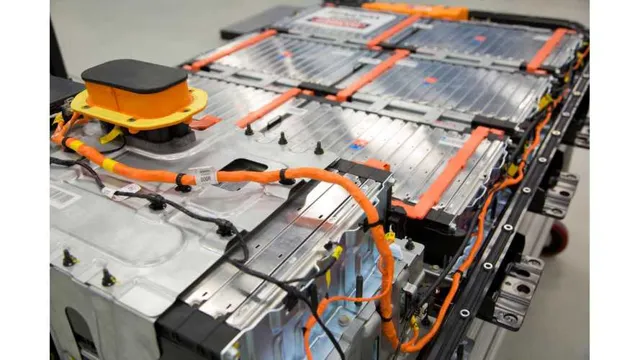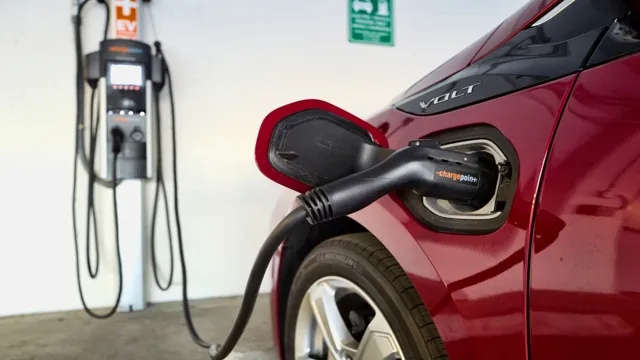Cold Weather Conundrum: Exploring the Impact of Low Temperature on Electric Car Battery Performance
Electric cars have gained popularity in recent years due to their eco-friendly benefits and fuel efficiency. Yet, one major concern for drivers is how electric car battery performance is impacted in cold weather conditions. As the temperatures drop, the battery’s performance can decrease, leading to reduced range and slower charging times.
This can be a major issue for those living in colder regions or regularly driving in winter weather. So, what can electric car drivers expect in terms of battery performance in cold weather, and what steps can they take to optimize their vehicle’s performance? Let’s dive in and explore.
Effects of Temperature on Battery Life
When it comes to electric car battery performance in cold weather, we need to consider the effects of temperature on battery life. Cold weather can significantly impact a battery’s ability to hold a charge, which can ultimately affect the range and overall performance of an electric vehicle. Batteries rely on chemical reactions to store and release energy, and these reactions are greatly affected by temperature.
In cold weather, the chemical reactions slow down, leading to a decrease in battery efficiency and a shorter driving range. This is why it’s important to keep your electric vehicle parked in a warm garage or invest in a battery heater to prevent performance issues in cold weather. Overall, understanding the impact of temperature on battery life can help electric vehicle owners optimize their battery performance and get the most out of their vehicle in any weather conditions.
How Cold Weather Impacts Battery Performance
When the cold weather hits, it’s not just the shivers you need to worry about – it can also affect your battery’s performance. The chemistry within typical lead-acid batteries slows down in cold temperatures, which means that they have less capacity to hold a charge. That could mean that your battery may struggle to start your vehicle, and may not last as long as it normally would.
However, this depends on the battery’s age, condition, and the temperature it’s exposed to. In extreme cases, the cold can even cause the battery to freeze, causing irreversible damage. To combat this, you can try to keep your battery warm, either by storing your car in a garage or using a battery warmer.
It’s also a good idea to have your battery tested regularly during the winter months, to ensure it is working at its best. By being aware of how the cold weather can affect your battery’s performance, you can take steps to prevent any issues and keep your vehicle running smoothly throughout the winter season.
High-Tech Solutions to Increase Cold Weather Battery Life
When temperature drops, battery life begins to suffer. Whether it’s your cell phone, laptop, or electric car, the colder weather takes a toll on our devices. But fret not, because high-tech solutions are available to help keep your batteries running smoothly.
One such solution is to use a battery heating system that keeps the battery at a consistent temperature, preventing damage caused by fluctuating temperatures. Another option is to use a battery management system that monitors and optimizes your battery’s performance based on the temperature and other factors. Additionally, using insulated battery cases and charging your devices properly can also extend battery life during cold weather conditions.
Remember, taking care of your batteries during extreme temperatures is crucial to ensure they last as long as possible. So, don’t leave your devices out in the cold!
Best Practices to Optimize Battery Life in Cold Weather
To keep your electric car performing optimally in cold weather, it’s essential to take a few key steps. First, make sure your battery is charged before hitting the road. Cold weather can drain your battery faster, so starting with a full charge can help mitigate any reductions in range.
Next, try to keep your car parked in a garage or other sheltered location whenever possible. This will help keep the battery and other components warmer, which can improve overall performance. If you must park outside, consider purchasing a battery warmer or investing in a portable charger to keep your battery warm and charged up.
Finally, keep your driving habits in check. Constantly using features like the heater or defroster can drain your battery faster, so try to limit your usage and bundle up instead. By following these best practices, you can help maximize your electric car’s battery life and maintain optimal performance even in the coldest weather.
Preheating Your Battery
As the temperature drops outside, it’s important to start thinking about your battery’s health. Cold weather can cause your battery to lose power quickly, making it difficult to start your car or turn on your electronic devices. One of the best practices to optimize battery life in cold weather is to preheat your battery.
This means giving your battery some extra time to warm up before using it. You can use a battery warmer or even park your car in a garage to keep it protected from the cold. By preheating your battery, you can ensure that it has the energy it needs to last longer in cold weather.
Taking simple steps like this can go a long way in keeping your battery healthy all winter long. So, make sure to give your battery the head start it deserves, and you’ll be able to keep your devices powered even on the coldest days.
Reducing Battery Drain
Cold weather can be a challenge for your battery life. The lower the temperature, the higher the internal resistance, resulting in an increased energy loss. But there are ways to optimize your battery and make it last longer.
One of the best practices is to keep your phone in a warm place, such as your pocket, instead of leaving it in a cold car or outside. You can also adjust settings like brightness, vibration, and background apps to help save energy. Turning off unnecessary features like Bluetooth, GPS, and Wi-Fi can also reduce battery drain.
And while it may be tempting to check your phone constantly in cold weather, try to limit usage to preserve battery life. By following these simple steps, you can ensure your phone will stay charged and ready to go, no matter the weather.
Driving Techniques to Conserve Battery Energy
Winter weather can be harsh on electric vehicles, particularly when it comes to battery life. However, there are certain driving techniques that can help conserve battery energy and optimize battery life in cold weather. One effective approach is to preheat the car before driving, either using the car’s built-in heating system or a remote app.
This not only maximizes the battery life but also ensures a comfortable environment for the driver and passengers. Additionally, it’s important to avoid excessive use of heating, defrosting, and other high-energy features in the car. Using the seat warmer, for instance, is often more energy-efficient than heating up the entire cabin.
It’s also a good practice to keep the car in a garage or a covered spot to avoid battery drain from the cold weather. By adopting these best practices, electric vehicle drivers can help prolong the battery life and make the most out of their electric driving experience in cold weather.
Top Electric Cars for Cold Weather Performance
When it comes to electric car battery performance in cold weather, some models are better than others. The Tesla Model S and Model X are excellent choices for cold weather driving, thanks to their advanced battery heating systems and cold-weather features such as heated seats, steering wheels, and mirrors. The Chevy Bolt and Nissan Leaf are also good options, with the Bolt boasting a battery heater and the Leaf featuring a heat pump.
The Porsche Taycan, Audi e-Tron, and Jaguar I-PACE are also highly rated for cold weather performance, with advanced battery technology and pre-heating options that can improve efficiency and range. Whatever model you choose, it’s essential to keep your vehicle plugged in and charged during cold weather conditions to maintain optimal battery performance.
Tesla Model 3
The Tesla Model 3 is one of the top electric cars that performs well in cold weather conditions. With its advanced electric systems, the Model 3 has a range of up to 322 miles on a single charge, making it ideal for long drives in the winter. Moreover, its AWD (all-wheel drive) system provides better traction control on snowy and icy roads.
The Model 3 also comes with heated seats and a heated steering wheel that make it comfortable to drive in cold weather. Its quick acceleration and responsive steering make it easy to navigate through snow and ice on the road. Additionally, the Model 3’s efficient regenerative braking system recovers energy when you slow down, giving it an advantage over other electric cars in cold weather.
Overall, the Tesla Model 3 is an excellent electric car that is perfect for those living in colder climates.
Chevrolet Bolt EV
When it comes to electric cars and cold weather performance, the Chevrolet Bolt EV comes out on top as one of the best options on the market. With its impressive range of 259 miles on a single charge, the Bolt holds up well in colder temperatures thanks to its battery heating system. In addition to that, the Bolt also features a quick and responsive electric motor that provides ample power and torque for driving in snowy or icy conditions.
Plus, its spacious and comfortable interior makes for a cozy ride while its tech-savvy features keep you connected and informed. So, if you’re looking for an electric car that can handle the cold, the Chevrolet Bolt EV is definitely a prime choice.
Final Thoughts on Cold Weather Electric Car Battery Performance
When it comes to electric car battery performance in cold weather, there are certainly some challenges that owners need to be aware of. However, with the right preparation and a few best practices, you can work to ensure that your EV stays running smoothly even during the coldest months of the year. One of the most important things to keep in mind is that cold weather can have a significant impact on your car’s range.
This is due to a combination of factors, including the fact that batteries are less efficient in cold temperatures and that drivers tend to use more energy to keep the heating system running. To combat these issues, it’s a good idea to make sure that your battery is fully charged before heading out on a trip, preheat your car while it’s still plugged in, and drive more conservatively to avoid unnecessary energy use. By following these tips and taking other proactive measures, you can help to ensure that your electric car stays running smoothly and efficiently, no matter what the weather outside might be like.
Conclusion
In conclusion, the performance of electric car batteries in cold weather can be a chilling experience for drivers. However, advances in technology and innovations in battery design are warming up the industry and proving that winter weather doesn’t have to put a freeze on electric mobility. As the popularity of electric cars continues to grow, manufacturers will no doubt be investing in more reliable battery systems that can perform in even the coldest conditions.
So, don’t let the winter blues keep you from going green with your car; just remember to bundle up and keep your battery charged!”
FAQs
How does cold weather affect the performance of electric car batteries?
Cold weather can negatively impact the performance of electric car batteries by reducing their range and overall efficiency. This is because colder temperatures slow down the chemical reactions that power the battery, lowering its capacity and increasing the time needed to charge.
Is there a way to improve the performance of electric car batteries in cold weather?
Yes, there are a few ways to improve the performance of electric car batteries in cold weather. One is to try and keep the car in a warmer location or garage, which will help the battery retain more of its charge. Additionally, pre-heating the car’s cabin before driving can also help, as it will reduce the need for the battery to divert energy to heating.
How do electric car manufacturers account for cold weather performance in their models?
Many electric car manufacturers include heating and cooling systems specifically designed to manage battery temperature and optimize performance in various weather conditions. Some models also include regenerative braking, which converts the car’s kinetic energy into electrical energy to recharge the battery, helping to offset the impact of cold weather.
Are there any safety concerns associated with electric car batteries in cold weather?
While electric car batteries are generally safe, cold weather can increase the risk of fire due to issues with battery management systems. It’s important for electric car owners to follow manufacturer guidelines for charging and operating their vehicles in cold weather conditions to minimize this risk. Additionally, it’s a good idea to keep the car’s battery and charging systems well-maintained and avoid exposing the car to extreme temperatures when possible.




